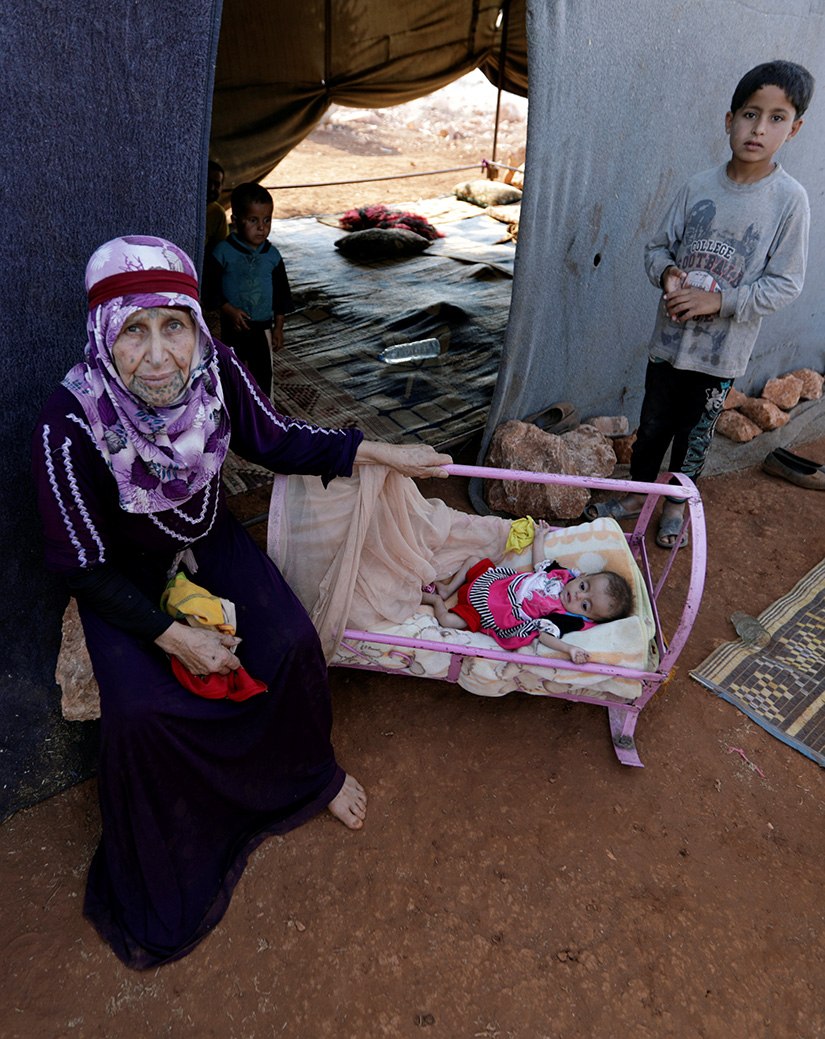 A displaced family is seen Sept. 11 at a camp in Idlib, Syria. At the White House Dec. 11, President Donald Trump signed into law the Iraq and Syria Genocide Relief and Accountability Act of 2018, which will provide humanitarian relief to survivors of genocide in Iraq and Syria and hold accountable Islamic State perpetrators of genocide.
Photo Credit: Khalil Ashawi | ReutersWASHINGTON — A new law offers assistance for the humanitarian, stabilization, and recovery needs of former and current religious minority residents of Iraq and Syria who have been targets of genocide.
A displaced family is seen Sept. 11 at a camp in Idlib, Syria. At the White House Dec. 11, President Donald Trump signed into law the Iraq and Syria Genocide Relief and Accountability Act of 2018, which will provide humanitarian relief to survivors of genocide in Iraq and Syria and hold accountable Islamic State perpetrators of genocide.
Photo Credit: Khalil Ashawi | ReutersWASHINGTON — A new law offers assistance for the humanitarian, stabilization, and recovery needs of former and current religious minority residents of Iraq and Syria who have been targets of genocide.
The Iraq and Syria Genocide Relief and Accountability Act authorizes assistance through the federal government or other entities, including faith-based groups. President Donald Trump signed the act on Dec. 11.
In addition, the act enables the U.S. Department of State — in collaboration with other federal agencies — to conduct criminal investigations and apprehend individuals identified as alleged IS members, and to identify warning signs of genocide and threats of persecution.
In Iraq, the number of Christians is below 200,000, down from 1.4 million in 2002 and 500,000 in 2013, before IS militants went on a genocidal campaign, according to figures provided by Smith’s congressional office.
Many of the remaining Christians in Iraq are displaced, mostly in Irbil in the Kurdistan region, and need assistance to return to their homes and stay in Iraq. Of the 550,000 Yezidis who remain in Iraq, about 280,000 are still displaced and also need assistance to return to their homes.
The U.S. House of Representatives Nov. 27 unanimously passed the measure, known as H.R. 390. The Senate in an earlier vote passed its version of the measure unanimously.
Before the House vote, Rep. Chris Smith, R-New Jersey, said in remarks on the floor: “When genocide or other atrocity crimes are perpetrated, the United States should direct some of its humanitarian, stabilization and recovery aid to enable these groups to survive — especially when they are minorities whose existence as a people is at risk.”
Earlier that day, he said, he had met with Chaldean Catholic Archbishop Bashar Warda of Irbil, Iraq, who told him: “Christians in Iraq are still at the brink of extinction. H.R. 390 is vital to our survival. If it becomes law, implementation must be full and fast. Otherwise, the help it provides will be too late for us.”
“The legislation signed today again reminds us of America’s earlier efforts to aid victims of genocide — Christian communities targeted by Ottomans a century ago and Jewish survivors of Shoah,” Supreme Knight Carl Anderson wrote in a statement Dec. 11.
Anderson had twice testified in support of the bill before Smith’s House subcommittee, and Smith told House members that his testimony “was the blueprint for the legislation.”
Besides the Knights, a number of religious liberty organizations, human rights activists, and faith-based and other advocacy groups threw their full support behind H.R. 390. Those groups include In Defense of Christians, the U.S. Conference of Catholic Bishops, Family Research Council, the Ethics and Religious Liberty Commission of the Southern Baptists Convention, the 21st Century Wilberforce Initiative, the Religious Freedom Institute, and the Hudson Institute’s Center for Religious Freedom and its Working Group on Christians and Religious Pluralism in the Middle East.
“The Catholic Church has consistently raised our voice in support of Christians and other religious and ethnic minorities who are facing persecution in the Middle East and are internally displaced or have fled as refugees,” according to a 2017 joint letter from the chairmen of the U.S. bishops’ Committee on International Justice and Peace and their Committee on Migration.